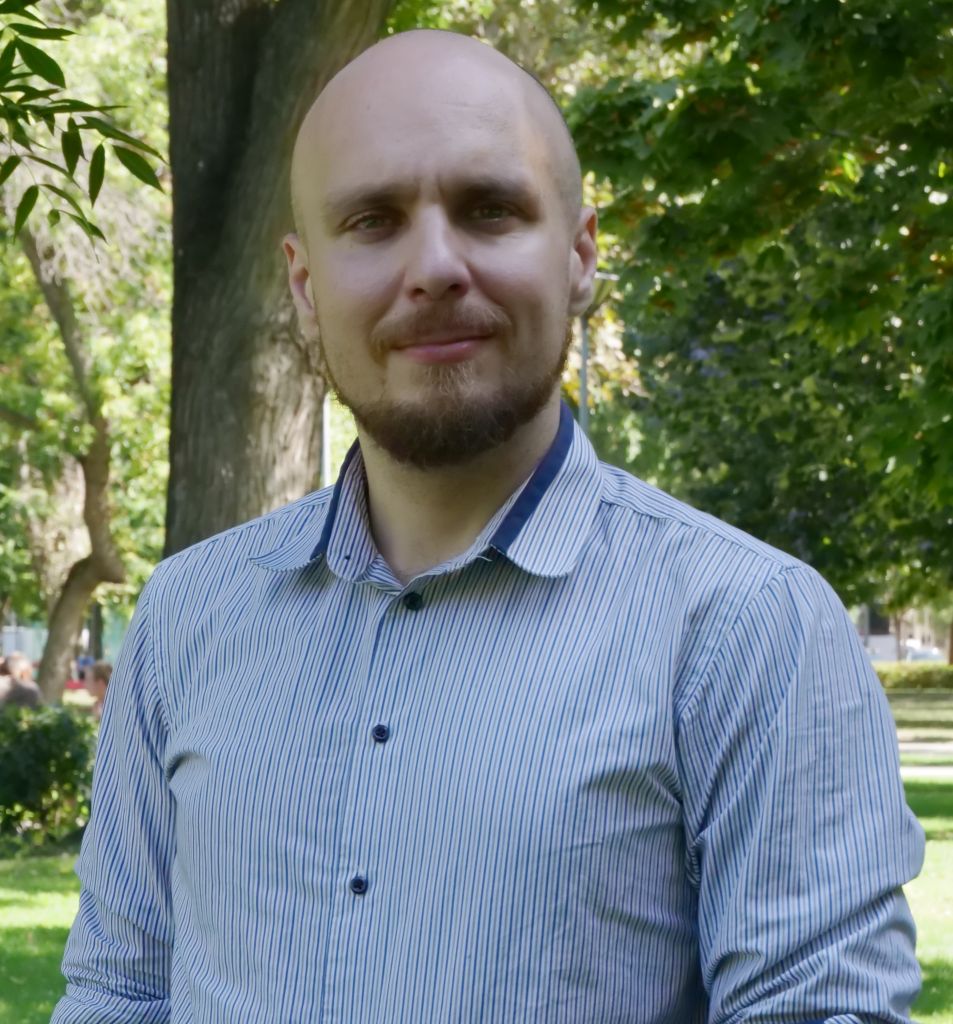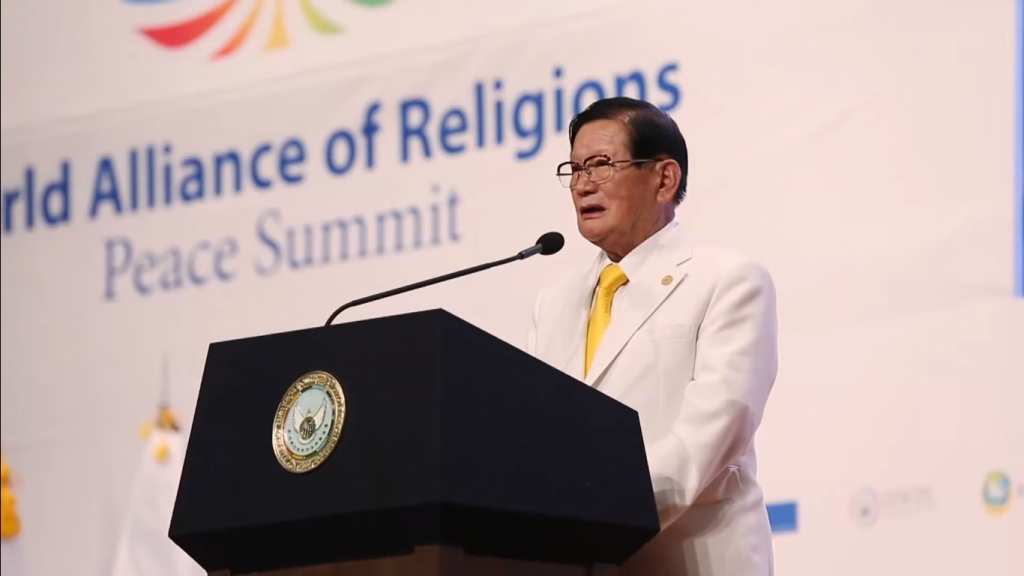The https://english.atlatszo.hu use cookies to track and profile customers such as action tags and pixel tracking on our website to assist our marketing. On our website we use technical, analytical, marketing and preference cookies. These are necessary for our site to work properly and to give us inforamation about how our site is used. See Cookies Policy
Virus-sceptic Korean doomsday cult aims to expand in Hungary
The new religious movement that has been blamed for the COVID-19 outbreak in South Korea is looking to set up shop in Hungary. Using an NGO as cover, the Shincheonji Church of Jesus reached out to Hungarian journalists, including Átlátszó’s staff, to advertise a lecture of Lee Man-hee, the church’s founder and self-claimed prophet, who was convicted of embezzlement in January.
On 9 February, Átlátszó received an e-mail in Hungarian from a person who introduced himself as a volunteer for “the international peace NGO HWPL”. The letter said that the NGO would like to contact European radio stations, newspapers and other media, especially Hungarian ones, in the hope of cooperation. They introduced HWPL as an organization dedicated to human rights, religious freedom and cultural relations which is organizing international events in throughout the year. To this end, the volunteer from the group invited journalists from Átlátszó to an online video conference.

As the messages came from an unknown-to-us NGO, were immediately suspicious, since in the recent past, similar invitations were sent to defame journalists and NGO members. A yet-unknown party (suspected by some to be Black Cube, an Israeli private intelligence firm that was also involved in the 2018 election campaign in Hungary) deceived journalists and activists to join fake video conferences and spliced defamatory quotes out of the recordings, which were later published by media outlets backed by the Orbán-government.
Covert intelligence methods used to support PM Orban’s smear campaign against NGOs
Leading pro-government daily newspaper Magyar Nemzet’s online news site has published several video clips presenting them as exposés last week. The paper quotes the words of journalists, experts and political analysts working in the non-profit sector as if they were supporting Fidesz’s conspiracy theories. Among other things, they talk about Brussels’ double standards towards Hungary, the influence of foreign powers on NGOs, the influencing of journalists reporting on Hungary, and the mobilisation of international public opinion against Hungary.
Our suspicions were not confirmed this time. While HWPL’s letter did not indicate it, a little research revealed that HWPL (the abbreviation stands for Heavenly Culture, World Peace, Restoration of Light), which is billed as an NGO, is an organization founded by the South Korean Shincheonji Church of Jesus.
The new religious movement – widely described as a cult – was founded by Korean war veteran Lee Man-hee, who turned 90 this year. The neo-Protestant-rooted Christian group has been around for decades and has chapters in several countries outside South Korea. Its teachings are centered around a supposedly imminent apocalypse and the biblical Book of Revelations, which Lee claims to be able to correctly interpret as a chosen prophet.
“I accidentally joined a cult”
According to South Korean state sources, the Shincheonji Church has around 317,000 followers in Korea, but it may have many more members worldwide – the exact number is difficult to estimate because of the church’s secretive nature.
The movement has been criticized in several countries for trying to recruit members through nominally independent organizations,
often targeting followers of other churches. One example is the UK-based charity and Bible study organization Parachristo, which has also brought the Church of England into conflict with the Korean movement, which has sought to use it to recruit Anglican believers. In New Zealand, mainstream Christian congregations in the Korean diaspora have issued warnings that the Shincheonji church is using apparently independent Bible studies to recruit and even send “undercover converts” to other churches. In an article in the ABC’s Australian edition last year, a Hong Kong student named Alex, studying in Australia, said “I accidentally joined a cult”. As he said, he joined a Bible study group billed as ecumenic, only to realize later that the group’s theology was the same as Lee Man-Hee’s teachings, and that it is essentially a recruitment tool for the Shincheonji Church.
The sect made international news in 2020 when they were blamed for the outbreak of the coronavirus in South Korea. In February 2020, the church held many mass events despite the risk of infection, which proved to be the initial hotspots for the virus.
In the first stage of the outbreak, half of the new infections affected members of the Shincheonji church. By July of that year, Lee Man-hee was prosecuted for violating epidemiological regulations, by which time estimated that 5,200 infections had been traced to church events.
At the beginning of the outbreak, Lee claimed that the virus had been released by the Devil to prevent the church from growing, and Korean authorities suspected that Lee’s teachings led to a number of church members failing to cooperate with health regulations and refusing to get tested or reporting infections. On 13 January 2022, the Suwon District Court in Seoul acquitted Lee of violating the pandemic rules, but found him guilty of embezzlement, as Lee was also charged with using church funds to build his house.
An unusual press event
Átlátszó eventually spectated HWPL’s February online press conference, which in truth ended up being a broadcasted sermon of Lee Man-hee and presented almost no information about HWPL’s charity and peace work. The “press conference” held via Zoom was quite unusual: the event was attended by nearly 300 people from several countries in Europe. It is not clear how many of them were journalists, but it did not really matter, as the participants were not allowed to ask questions during the video conference. Instead, the event was essentially the church leader building his sermon around questions pre-recorded by others and asked in videos pre-recorded by the organizers.
The conference also imposed highly unusual rules on participants: in the invitation we received, organizers said that, as the press conference was being recorded for later use, it was essential for all participants to switch on your webcam, wear “appropriate attire, avoiding clothes that are too comfortable or casual”, and even to set up a Shincheonji Church-themed background on Zoom –
it was clearly important to the organizers to visually associate participants with the religious movement.
The press event began with a video describing the structure, activities, and theology of the church. It also revealed one of the aims of the current press event: the number of religious people is decreasing in many countries in Europe, while at the same time, the number of adherents of the Shincheonji Church is increasing.
Apocalyptic teachings
The video was followed by a speech by Lee Man-hee, interpreted in several languages. Lee began with a presentation of the church’s foundation myth (God appeared to him as a young man in the form of a star, calling him to preach, and then showing him visions of the coming apocalypse), and then responded to question asked in pre-recorded video messages (almost all were made by pastors associated with the Shincheonji church).
One video asked if Lee agrees with the conspiracy theory that the COVID-vaccine is the Mark of the Beast described in the Book of Revelation.
Lee answered the straightforward question with a long, rambling lecture where he called other religious leaders the servants of Satan, and affirmed that he himself received prophetic visions. His conclusion, in the end, was that, no, the vaccine is not the mark of the Beast, which has to be read symbolically. But it would take a very long time to explain all this so, if you want to know, buy a plane ticket to Korea and attend his services – Lee advised.
Much of the rest of the lecture was about interpreting the Book of Revelation, as Lee claimed to have seen the visions described in the book himself. According to the church’s theology, the apocalypse does not mean the end of the world, but rather that after the tribulation a new community of believers – the Shincheonji Church itself – will be formed to establish Christ’s kingdom on earth.
Successfully tricking politicians
The Shincheonji movement has recently invested a lot of energy in expanding in Europe, with the most success in Romania. In 2017, four Târgu Mureș city councillors travelled to Seoul for the HWPL event “Alliance of World Religions for Peace”. A year later, the mayor of the Transylvanian town signed a cooperation agreement on higher education and culture with Lee Man-Heev, who in return awarded Tirgu Mures the title of Cultural City of Peace.
The cooperation was later cancelled due to protests from local representatives of the Free People’s Party, who wrote that “the HWPL, as an extended arm of the Shincheonji Church, should not be associated with any public institution in Romania”.
HWPL has also contacted other politicians in Romania, even holding a conference in the Romanian Senate building in 2019. The event was advertised as being organized in partnership with the Romanian government (then president of the EU), which was not confirmed by the Bucharest government. However, the group’s events were attended by famous politicians, including Serbian President Boris Tadic, former Bosnian Prime Minister Zlatko Lagumdžija and former Hungarian President Pál Schmitt.
So far, no activities of the Shincheonji Church have been made public in Hungary, but there is apparent intention to expand here, as a paid advertisement appeared in December on a Hungarian local news site, advertising the sect’s online seminars.
Written and translated by Zalán Zubor, the original Hungarian story is available here. Cover image: Lee Man-hee speaking in a HWPL-organized event (Source: screen capture, YouTube/HWPL)
Hungary. What do you know about Hungary? from atlatszo.hu on Vimeo.
Share:
Your support matters. Your donation helps us to uncover the truth.
- PayPal
- Bank transfer
- Patreon
- Benevity
Support our work with a PayPal donation to the Átlátszónet Foundation! Thank you.
Support our work by bank transfer to the account of the Átlátszónet Foundation. Please add in the comments: “Donation”
Beneficiary: Átlátszónet Alapítvány, bank name and address: Raiffeisen Bank, H-1054 Budapest, Akadémia utca 6.
EUR: IBAN HU36 1201 1265 0142 5189 0040 0002
USD: IBAN HU36 1201 1265 0142 5189 0050 0009
HUF: IBAN HU78 1201 1265 0142 5189 0030 0005
SWIFT: UBRTHUHB
Be a follower on Patreon
Support us on Benevity!

